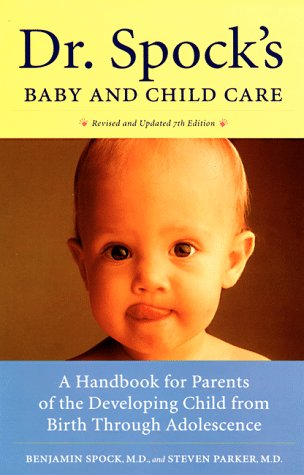Question of the Day: Is the media’s focus on “a war on truth” misdirected?
There are two kinds of horror movies. To prove this point, I will stick to films based on Stephan King novels. At one end of the spectrum are stories, while gory, are not the source of nightmares. For example, to believe in aliens disguised as clowns who pull unsuspecting children into sewers (“It”) or lonely high school students with telekinetic powers (“Carrie”) is not a matter of fact or fiction. In contrast, the King tales that give me the willies are those that could be ripped from the front pages of any hometown newspaper. Where a rabid dog (“Cujo”) turns on his master and his extended family or the obsessed fan of a series of romance novels seeks revenge when the author decides to hang up his keyboard (“Misery”).
 The difference? To enjoy the cinematic treatment of the supernatural requires something other than evidence of its possibility. Instead, all one needs is to suspend logic. On the other hand, identifying with a mother trapped in a VW Beetle, trying to protect her son from a foaming at the mouth St. Bernard, is not predicated on a moratorium on common sense. Anyone with a limbic system, the part of the brain that processes emotion, knows creatures and people like Cujo (portrayed by four St. Bernards, a black Labrador-Great Dane mix in a St. Bernard costume and stuntman Gary Morgan) and Annie Wilkes (Kathy Bates) exist in our world.
The difference? To enjoy the cinematic treatment of the supernatural requires something other than evidence of its possibility. Instead, all one needs is to suspend logic. On the other hand, identifying with a mother trapped in a VW Beetle, trying to protect her son from a foaming at the mouth St. Bernard, is not predicated on a moratorium on common sense. Anyone with a limbic system, the part of the brain that processes emotion, knows creatures and people like Cujo (portrayed by four St. Bernards, a black Labrador-Great Dane mix in a St. Bernard costume and stuntman Gary Morgan) and Annie Wilkes (Kathy Bates) exist in our world.
Which brings me to 2021 and media reports about the “war on truth” and how it might be won. How do you get the 75 percent of the Republican Party who believe Joe Biden stole the election to accept he won fair and square? Certainly not by reminding them 64 judges, six state legislatures and numerous governors and election officials tell them there is no basis for denying the obvious. That’s now been done for over two months. Perhaps it is not the facts themselves the non-believers cling to, but their suspension of logic that makes their acceptance of a Trump defeat so unbelievable.
Let’s look at a more logical explanation of an election where the challenger wins by more than seven million votes and more Americans cast ballots than any time in the nation’s history. Logic, as well as presidential history, tells us NO chief executive with the following portfolio should expect to be re-elected.
- Never had an approval rating over 50 percent.
- Insulted ethnic groups which are an ever growing percentage of the electorate.
- Was constantly outed as self-absorbed and incompetent by his own inner circle.
- Separated thousands of young children from their parents.
- Violated constitutional and legal norms to further his hold on power.
- Lied to the nation about the worse health and economic crisis in over 100 years.
To believe in any other outcome requires a suspension of logic equivalent to that needed to accept a Native-American burial ground turned pet cemetery can reanimate a child tragically killed on a rural Maine highway.
 The same is true of the record turnout. Any parent has experienced the consequences of trying to modify behavior by telling a child they cannot do something. That is Dr. Spock 101. So, when GOP officials in several states did everything they could to discourage voters they knew would vote against Trump’s re-election, the response was as logical as a three year old drawing on a wall despite exhortations to the contrary. How dare you tell me what I cannot do! I’ll show you! And show us they did. Eighty-one million of them.
The same is true of the record turnout. Any parent has experienced the consequences of trying to modify behavior by telling a child they cannot do something. That is Dr. Spock 101. So, when GOP officials in several states did everything they could to discourage voters they knew would vote against Trump’s re-election, the response was as logical as a three year old drawing on a wall despite exhortations to the contrary. How dare you tell me what I cannot do! I’ll show you! And show us they did. Eighty-one million of them.
America has a choice. It can fight every political and cultural battle one fact at a time. Or it can encourage a return to logic, where all facts are viewed in the context of a more rationale backdrop. And like charity, logic begins at home. Consider the following. Instead of trying to convince COVID-19 deniers to mask up by pointing to the growing number of cases, hospitalizations or deaths, ask them what they would do if a member of their own family was susceptible to a potentially fatal disease. And their family physician tells them there are three or four things they could do to make a negative outcome less likely. They inherently know what they would do. Perhaps then you can have the conversation, not about 335 million Americans, but the 128.5 households, just like theirs, that are all having to make the same choice.
Bottom line? If you want agreement on the facts, it is necessary to first get people to subscribe to the logical context and assumptions which can make the facts easier to accept regardless of one’s partisan or ideological prism. It is the pending “death of logic,” not the “war on facts” that makes that task so much more difficult.
For what it’s worth.
Dr. ESP